Simon Lessing: Reflections on life after a brilliant career
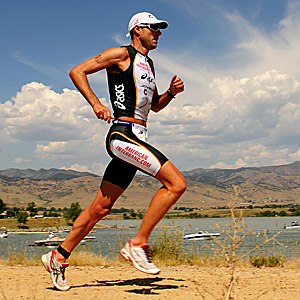
For those who just came to the sport since the year 2000, it may be impossible to conceive how Simon Lessing once bestrode the world of triathlon like a Colossus. From the time he won the South African National Championship in 1988 at age 18, through his International Triathlon Union Olympic distance world championships in 1992, 1995, 1996 and 1998, his ITU long course world championship in 1996, his wins at big non drafting classics at Chicago and Alcatraz, his domination of the French Iron Tour, victories at the 1994 and 1996 Goodwill Games, and triumphs at an indoor race in Bourdeaux and a super sprint in Koblenz, plus a still-standing course record Ironman debut at Lake Placid, up to a flash of greatness in July 2008 in which he broke his own course record at Boulder Peak – Simon Lessing was the perfect illustration for an encyclopedia entry on excellence, triathlon version.
And yet, at the tender age of 37, his 23 years in his demanding sport have spoken these words to the tall, regal exemplar of high standards, unrelenting discipline and a white hot competitive will.
It’s time.
Lessing will tee it up one more time at the Austin 70.3 race this weekend, and then make occasional appearances at short course races that pique his interest. No more the role of full-time, prideful, excellence-obsessed professional.
After thousands of miles of fierce unforgiving workouts, many against fellow hard miles legends like Brad Beven, Lessing’s body slowly but inevitably bent. A major back operation in 2006 came weeks after a miraculous, considering his painful injuries, second place in the inaugural Ironman 70.3 world championship in Clearwater. His own doctor said Lessing’s chronic spinal disc herniation, a narrowing of the spinal canal, led to a locked up hip complex, shooting pains in his leg with a 40 percent leg strength imbalance, and “hamstrings as stiff as steel rods.”
After that operation and rehab Lessing was cured of the back pain. but years of adapting to the aches led to new issues — an Achilles problem, a hamstring issue, shin splints, and then an elusive-to-cure knee. No longer able to put in the high quality hard miles, Lessing’s place in the rarefied air at the top of the podiums was no longer assured.
Years of missing his beautiful young daughters' swim meets and Brownie campouts as he lay wiped out on the couch after another day brutalizing himself in rugged swim, bike and run workouts finally spoke to him.
“For me it is time to move on,” said Lessing. “I have to face reality that I won’t do triathlon professionally for the rest of my life. I will still obviously be involved in other aspects of the sport. But I will look at triathlon from other perspectives. I will surround myself with other projects and I will enjoy setting new goals.
Lessing plans to maintain and grow his Boulder Coaching business from his home base in Colorado. He will also continue in his role as a spokesperson for Athletes for a Cure, and Boulder-based CEO Challenges. In 2009, Lessing will co-host the CEO Triathlon Challenge, encouraging CEOs who have a desire to compete in triathlon to take the step from the corner office to the race course.
In his long career filled with athletic success, Lessing showed his character most clearly in the rare difficult times – his shocking loss in the last meters at the 1999 ITU World Championship, his deeply disappointing 9th place finish at the inaugural Olympic Triathlon in 2000, and at his meltdown DNF at his big try at Kona in 2004. On each occasion, Lessing made no excuses, saluted the winners and, ever the stoic, licked his wounds in private.
On the eve of his last battle as a professional, Lessing reflected on his remarkable career and life.
ST: How did you know when to retire?
Simon: Old age (chuckles). For the last two years I haven’t been able to train the way I’d like. I’ve had one injury issue after the next. To a certain extent my body says I've had enough. I’ve been torturing myself the last 23 years and there comes a time even if the mind says I want to do this, the body says I need a break.
ST: You’re racing pretty well – you broke your own race record at Boulder Peak?
Simon: The other factor: I am tired of the monotony of doing the same thing year after year. I never took a break. In hindsight maybe I needed that. I'm going to be 38 in February and I am not getting any younger. The guys I'm racing now are 15-18 years younger and are extremely motivated. They are living for one thing alone – to do the best they could on the triathlon stage. I’m very familiar with that mindset.
ST: You’ve been living the dream for 23 years. Why did you want to step out from the well-paying bubble?
Simon: When you race as a professional you get channeled into a unique environment. There is a tendency to lose perspective. You lose perspective about what happens around you, what happens with people with a normal lifestyle, with what happens around you, directly and indirectly. I reached a stage in life where I want to set new goals. I’m up for the challenge.
ST: You’d established the highest standards for your triathlon career. Was there an emotional, family–oriented component to your decision?
Simon: Of course I actually look forward to have a little different lifestyle like taking my daughters Amelie and Karla to swim meets and not have the guilt trip that I need to get out there and train. As a professional triathlete, there are no days off. Everything is intensely orientated around swim, bike, and run. I’d like to be able to relax a bit and exercise recreationally. Maybe just do one sport a day and not cram in three sports and be exhausted all the rest of the day. I’d like to rekindle the enjoyment factor.
ST: Does this mean you will never race again?
Simon: No. I realized that while racing Boulder Peak as well as I did that sprint distance and Olympic distance races have a nice atmosphere. They do not require 100 percent of your time to prepare. That means in summer if I get myself in shape for shorter distance races, I’d love to jump into one. But I don’t want the old pressure, the need to perform at the limit. Obviously that has a direct correlation with sponsorships and all that involves.
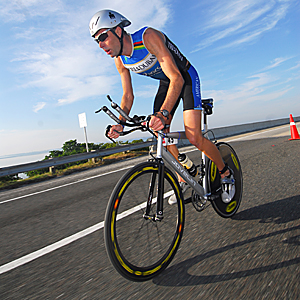
ST: Is there something about triathlon you are still drawn to?
Simon: I am not going to turn my back on triathlon or walk away, but I'd like to be a bit more relaxed about it. That is obviously an incentive. The majority of people do it for the lifestyle. I now realize as a soon to be 38-year-old there is a tendency to get a bit fatter and I have to watch my cholesterol. That is why a majority of people are attracted to the sport. It offers a balanced way of keeping healthy, I certainly have no intention to sit on my ass and get fat. I will enjoy being able to exercise,
ST: What were your recent injuries?
Simon: I was coping with major back surgery at the end of 2006. Two weeks after I finished second at (the inaugural Ironman 70.3 World Championships) at Clearwater. I had struggled through the whole of 2006 racing with a pretty severe back injury. Doctors at that time said they couldn’t believe I raced in that condition. But when I had surgery, I had really good doctors, led by Dr. Allan Villavicencio, a very good Boulder neurosurgeon and a 9:56 Ironman. The bottom line was that he had a very clear idea of what my lifestyle entailed. He didn't say "Whoa, you need to stop your career." He got me exercising pain-free after surgery for two years. He solved that problem, but others arose. After so much competition over 20 years, as we get older, certain areas are weakening, others are overworked. This led to an Achilles problem last year, which led to hamstring issues because of overcompensating for my Achilles. The next thing, I got shin splints. Never in my life had I had shin splints. I tried to run through that, but then I developed a bit of a knee problem.
ST: How did the rising level of 70.3 competition affect you?
Simon: The bottom line is the level of performance is increasing. More and more really good pros are coming through very keen and determined to prove their worth. Three or four years ago you could go into half Ironman races half prepared and finish well and not have a 100 percent commitment. Now if you’re not fully prepared you can be lucky to finish in the top ten. No doubt as young athletes move off Olympic distance and into the half Ironman, it’s taking 70.3 racing to a new level. It’s become a very very competitive distance to race. I used to be able to cherry pick some races for easy money. Nowadays, it does now matter which race – it’s a battle. For example, there are many new Aussies who are extremely talented athletes. Not only that, they have an unbelievable motivation and determination behind them. It is not talent alone. You need all aspects to do well these days. It is a hard business to succeed. I just feel ‘OK I need to take step back from that.’
ST: Has it also been wearing on you to be fighting injuries?
Simon: I've always been a bit of a perfectionist. Preparing for races my expectations have been very very high. I have only been happy with first, due to my competitive nature. It is very frustrating not being able to perform the way I used to. That is due to certain extent a lack of fitness due to not being able to train for running at my standards the last 24 months. I do not enjoy going to races and finishing 10th. There is no satisfaction in that. Now I’d rather set new goals and set out to achieve them.
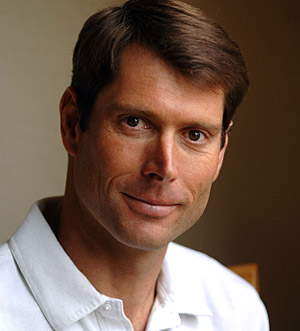
ST: What races are you most proud of?
Simon: I have been asked that a lot. Because of yhe diversity in our sport, every race is so different. It is virtually impossible to say one key moment or one key race. I think the answer is my consistecy. That I have been able to be so consistent in all disciplines and at all distances. From indoor sprints to non-drafting and draft-legal Olympic distances, half Ironman, the Nice distance and even with my limited Ironman experience, I still managed to race well. I had a pretty successful race at Ironman Lake Placid (where he set a still-standing course record of 8:23:12 in 2004). Starting in 1988 until a few years ago, I have been able to be consistent and to adapt to the changing times of triathlon.
ST: How is your career to be measured?
Simon: Ultimately, the standard of a career is this. It is always easier to win one race. Of course it is never absolutely easy — that always requires fundamental commitment, dedicatiion, and luck to certain extent. But the hardest part is to come back and do it again and again. To race well not just one season. Some guys have had a fantastic season but we never see it again. The hardest part is consistency.
ST: While it has taken its toll recently, your high standards also brought you to the summit of the sport you loved, no?
Simon: The perfectionist impulse drove me and kept me fresh. I have had only a few perfect races. There were some world titles where I was sorely disappointed with some aspects of my race. People would say: ‘Well, you won! That’s the most important thing.’ But for me, that was not the most important thing. For me it was the notion that I could always do better with aspects of strategy and race preparation. I could always clean up the mistakes and do better. That kept me going, rather than any desire to win 25 times in one year or to beat Brad Beven or Greg Welch or Mike Pigg. Those things were really ultimately of secondary importance to me.
ST: Toughest defeat?
Simon: Obviously the 1999 Worlds in Montreal (where he was passed in the final stretch for the gold by little known Dimitry Gaag of Kazakhstan) was a bit of a blow because I actually thought I had the race won. I thought I had done all I needed to do put it on ice. With one kilometer to go, I made a significant gap on the leading pack and I felt the race was in the bag. But out of the blue with a few hundred meters to go, Dimitry came sprinting by. Many of us didn’t know him well. We knew he occasionally had a fantastic race. But he was in the pack I had left behind me.
ST: Closest duel?
Simon: It is funny, when I first started racing on the international scene in the early ‘90s it was acceptable to be 1:00 to 1:30 ahead at the finish. As the sport evolved in drafting races, you were lucky to win by 5-10 seconds. A good margin to be a ahead was 15 seconds. Ultimately, drafting made all the races very hard and to a certain extent you adapt to that.
ST: Favorite duel?
Simon: I still have fond memories racing Mark Allen in Nice in 1993 . I was 22 and I ran side by side with Mark as he was chasing his 10th straight win and I was in his way. There were 25 or so spectators and journalists on bikes chasing and shouting for Mark or for me. In those days, they could ride bikes beside and behind us on the course. For me it was my first long course race. And that day, Mark had no idea who I was and had no way to judge my ability. So we played cat and mouse all the way through. Ultimately, I struggled through lack of nutrition and other rookie mistakes and Mark pulled away with 5 kilometers to go. But the atmosphere was unbelievably fantastic.
ST: Were you overawed? What did that race mean to an up and coming star?
Simon: Of course at that time Mark was THE guy. From my young and fresh perspective it was all new and exciting. To be up racing with him at the end of the race was an achievement in itself. I went into the race not thinking to win. I just hoped to finish. It certainly gave me a boost of confidence. Losing didn’t bother me. I thought: I’m young, I have all the time in the world.
ST: Was this your first encounter with The Grip?
Simon: I’ll never forget earlier that year I raced Mark at an indoor triathlon in Bourdeaux. Mark was there with (his wife) Julie (Moss). Mark and I had a sprint finish. Afterward, I told Julie; “You need to give Mark a break. He’s an old man compared to me. Imagine how good I’ll be when I am Mark’s age.’ Of course Brad Beven lapped all of us. It was January or February and the Aussies came over and were already fit after their summer season. Most northern hemisphere athletes had just done four weeks of training.
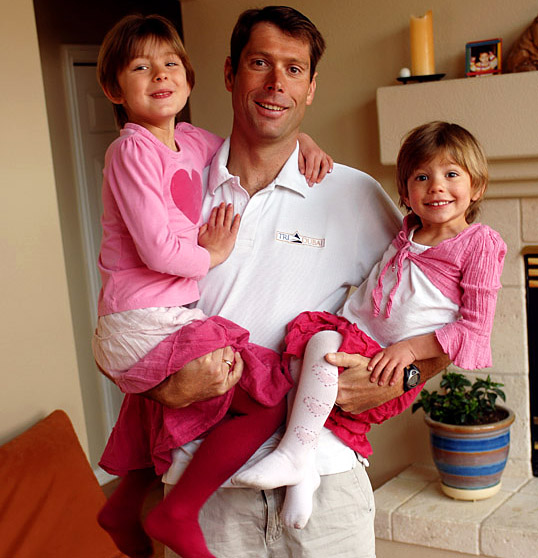
ST: Who were your early rivals?
Simon: I always felt confident that I had the utmost respect from all the key athletes at the time. I certainly respected them and held them in high regard. Now I almost feel like I've outlived my triathlon existence. I go to races and people have no idea of the history of the sport more than 4 or 5 or 6 years ago. In a way, it’s a little sad. And I am not referring to my own personal achievement.
ST: What were some of those battles that should be remembered?
Simon: At that stage, all the top pros came to Mrs. T’s in Chicago. Literally every single race turned out to be an epic battle with four or five athletes who were always going to be competitive. If I raced Mike Pigg, I was very hard pressed to beat the guy. My strategy was to get out of the swim first and try to limit the deficit on the bike and get in touch by the end of the run. That is how most of the races played out.
ST: You’ve said there was a camaraderie among rivals not found today?
Simon: It was a unique atmosphere. It was something like a tribe. Sure we went around the world racing each other to the last stride. But it was a bit like a family. We had a great time after the race where we always happened to get together and do really fun things. Not to say that we had friendships with everyone back then. It was not all buddy buddy. Sure there were differences. But on the whole, we raced hard and knew how to have a good time after all. I have really great memories. After Laguna Phuket one year, I went to Everest base camp with Mike Pigg and his wife Marci. Through our travels we developed friendships and respect for each other. That is a huge difference with today’s triathlon scene. Nowadays there is a lot more stress. Pros do the race and get the hell out and get to the next race.
ST: Why is it different now?
Simon: A lot of people in the triathlon world have not been involved in that experience. They do not know the history of races and the athletes and what athletes had achieved. There is a lack of awareness of people like Brad Beven, Greg Welch, Mark Allen and Dave Scott. And Mike Pigg – he was the best short distance non-drafting triathlete in the world. It was a big deal to beat him. Yet many do not know at all who Mike is and what he did. Realizations like that make me feel I’ve been in this too long.
ST: Some of the modern coaches know how great you were. But they say you could have been better if you hadn’t trained so hard.
Simon: Again the bottom line was I trained really really hard. Not only by myself, I worked with Brad Beven and we used to train each other into the ground. I learned I could do it in my early ‘20s, but I can’t now so I adapted. Now a lot of athletes feel they can bide their time and hide behind gadgets like power taps and heart rate monitors. They fundamentally lose the notion that pure hard work gets you to the finish line. I see it all the time. Athletes look for the easy way out. They buy expensive equipment, aero helmets and training gadgets, and constantly hold themselves back. They have the notion that it is easier to do it that way. But the bottom line is this is a hard sport. You have to swim, bike and run and the combination makes for a physically grueling, tough sport. There is nothing like hard work. Sooner or later everyone from the pros to average Joes must realize the better off they will be when they work really really hard and repeat it. As pros, we had the opportunity to do so. I think even age groupers with family commitments who want athletic success can’t lose sight that you must be consistent and make every workout count. You have to make it efficient and not waste sessions within a weekly or monthly schedule.
ST: Some say your long track-oriented run stride led to injuries and wasn’t as efficient as a higher turnover, shorter stride. What do you think?
Simon: I think a lot of people try to find criticisms. The bottom line is I did what was right for me at the time. My strength was the fact that I could get off the bike and run flat out at race pace from the word go. I felt that was a strength. Whereas a lot of guys I race with took a while to find their cadence, to settle down into a solid running effort. I knew all through my career and life as a runner from the age of 5 to today – that I could never sprint that well. I did not have a competitive sprint. The objective was to make a significant gap through the race so it wouldn’t come down to the last few meters. It worked well all through the ‘90s.
ST: Can you win Austin?
Simon: There’s a bunch of people who have just signed up for that race I was hoping would not be there. I’m gonna do my best. I think I haven’t been training as much this year. All I can do is my best. The reality is it will be a hard race. I will be competing against athletes who have done very well this year will compete. Richie Cunningham has done well. And Joe Gambles beat Chris Legh a few times.
ST: What was your best race this year?
Simon: I am pretty happy with Boulder Peak. I broke my own course record and biked under an hour. In fact I was just 30 seconds behind the winner, Matt Reed, while he was in the peak of his Olympic preparation. For me, in my more relaxed state, I was pretty happy to do that. At Timberman, I had a solid race for where I was in training. (Third place behind Andy Potts and Fraser Cartmell) Andy Potts embarrassed most of us. He ended up extremely far ahead.
ST: What role has your wife Lisa played in this decision?
Simon: Far from discouraging my racing, Lisa has always been my number one supporter. She believed in me more than myself, and so I still catch her saying ‘Wow, you could have done this. You could have done that.’ I have to tell her, ‘Look if I face reality, I probably couldn’t have won because I am five pounds heavier than last year.’ But she still firmly believes in me. Coming from her background as a top ranked USTS pro, she always had a clear understanding what I’ve achieved. She has been extremely proud of me. She supported me 100 percent. Never once has she said ‘I wish you’d stay at home.’ She helped me so much the last 8 years. On rough days when I did not feel like getting out, she’d say ‘Maybe you should go for an easy ride.’ She has always had a clear understanding of how I was doing in so much of my career. She can go to a race and know I will have a good race by the way I swim and the way I run out of transition.
ST: How has she helped you deal with the stress of being a top athlete?
Simon: Her understanding has been a fantastically key element to my involvement in the sport. I know a lot of athletes deal with constant pressure from their spouse. We are all involved in an extremely selfish sport. You have to be selfish and must think about yourself. No matter whether it is from a pro perspective or a first time beginner, it is very demanding to master a combination of three different sports and fit that training into a weekly schedule with a job. It is extremely demanding. It’s an odd area of life that can cause family upheaval.
ST: How do you feel about missing your daughters’ swim meets?
Simon: I must say I felt guilty over the past few years about missing out on my daughters’ activities. Often I felt like I didn’t have enough energy to participate after a hard day of training. So there is a guilt trip. My daughters Amelie (7) and Karla (5) were active in a Boulder swim program this summer. I missed the majority of their events. ‘Oh Daddy has to go for a long bike ride.’ I did not want to miss them. My mum and dad did everything with all of us children.
ST: So you know how much it meant to have your parents at your sporting events?
Simon: Amelie loves swimming and she’s really enjoying it. Part of the enjoyment is to have your family involved. Both Lisa and I very consciously want to give them that support, but do not want to push them. I grew up swimming and was almost overwhelmed. At 14, that single-minded focus pushed me into triathlon. I was fed up with swim, swim, swim and run, run, run. So, with our kids, we want to support them. We feel our responsibility as parents is that if you find your child has interests and talents, whether to throw darts or to play piano, whatever ability they have it is our responsibility to support that in a healthy way. Sport can be a very important tool to help develop self esteem. Both my wife and I do not have not much issue with self esteem. But swimming has turned out to be a fantastic tool for Amelie’s self esteem. We do not push her. We try to walk that fine line between encouragement and pushing. I feel so sorry for kids who are pushed. We have tendency to be on the other side and be a bit more relaxed about it.
ST: What do you hope to find in your competitive retirement?
Simon: I think hopefully by me taking a step back from full time racing I will find higher energy levels to put into other aspects of my life. It’s a fine line most triathletes deal with all the time. It’s an absorbing sport. If you overindulge, you can end up completely forgetting about more important aspects of your life – work, family and other things. And so I have a fundamental respect for age groupers who try to do this complex sport as best they can. It amazes me how age groupers sacrifice their own personal athletic goals to incorporate everybody and everything that they are involved with. As pros we have a tendency and the luxury to think about number one and screw everyone else.
Simon Lessing's coaching website is bouldercoaching.com


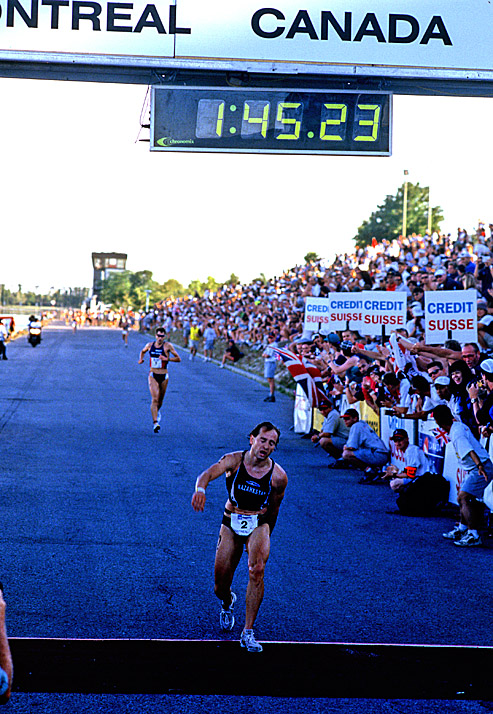
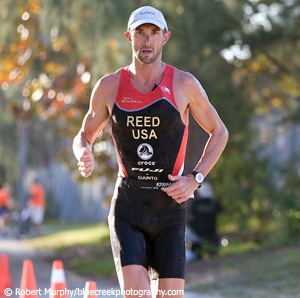
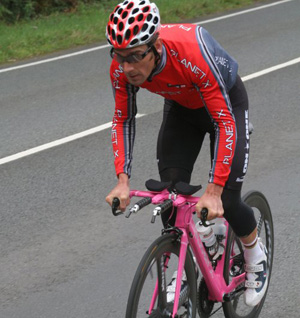
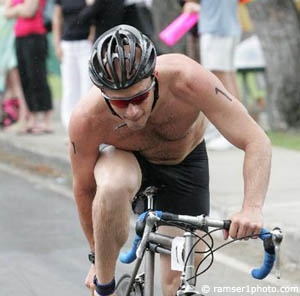
Start the discussion at slowtwitch.northend.network